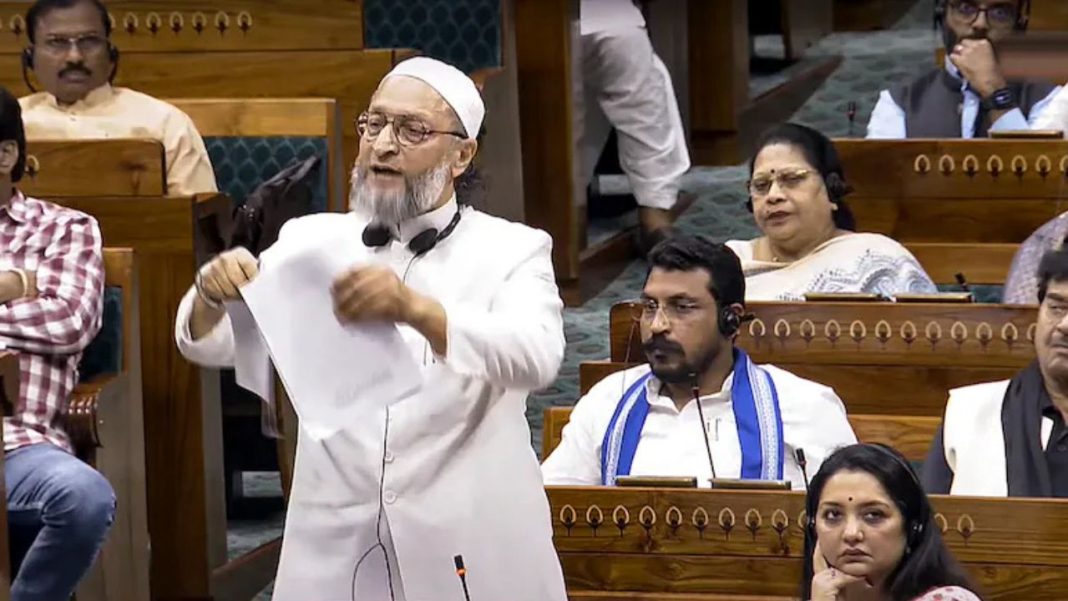Waqf Amendment Bill: There is a political controversy across the country over the Waqf Amendment Bill. Both the houses of Parliament – Lok Sabha and Rajya Sabha – have passed this bill. However, Congress, many opposition parties and many Muslim organizations are strongly opposing it.
Now this matter has reached the Supreme Court. AIMIM MP Asaduddin Owaisi and Congress MP Mohammad Javed have filed a petition in the Supreme Court challenging the Waqf Amendment Act.
Mohammad Javed’s petition states that this bill imposes arbitrary restrictions on Waqf properties and their management, thereby weakening the religious autonomy of the Muslim community while Owaisi’s petition argues that the amended bill is unconstitutional.
Owaisi Tore Up the Bill Copy
During the discussion in the Lok Sabha on Wednesday, Owaisi strongly criticized the BJP-led central government over the Waqf Amendment Bill. In protest, he tore a copy of the bill and alleged that it would lead to injustice against Muslims.
Waqf Amendment Bill Passed in Both Houses of Parliament
After being passed in the Lok Sabha, now the Waqf Amendment Bill 2025 has also been approved by the Rajya Sabha.
In the Lok Sabha, 288 votes were cast in favour of this bill and 232 against it. In the Rajya Sabha, 128 members voted in its favour while 95 voted against it. This bill has now been successfully passed with a clear majority in both the houses.
What Is Waqf?
In Islam, waqf means property dedicated for public welfare. It is a form of charitable donation where the donor can contribute movable or immovable property. Preserving these donated properties for public benefit is the essence of waqf. It includes not only houses, land and farms, but also things like fans, coolers, bicycles, televisions and refrigerators.
Unlike some Islamic countries such as Turkey, Libya, Jordan, Tunisia and Egypt, where no formal waqf system exists, India’s waqf network is extensive and legally protected. However, challenges related to transparency, accountability and governance remain.
In September 2024, the Ministry of Minority Affairs reported that there were 40,951 cases pending in Waqf tribunals, of which 9,942 cases were filed by members of the Muslim community against entities managing Waqf properties.
Furthermore, case resolution is often delayed and there is no judicial monitoring of tribunal decisions.
Also Read: Waqf Bill Passed in Lok Sabha Amid Opposition Uproar – What’s Next in Rajya Sabha?





